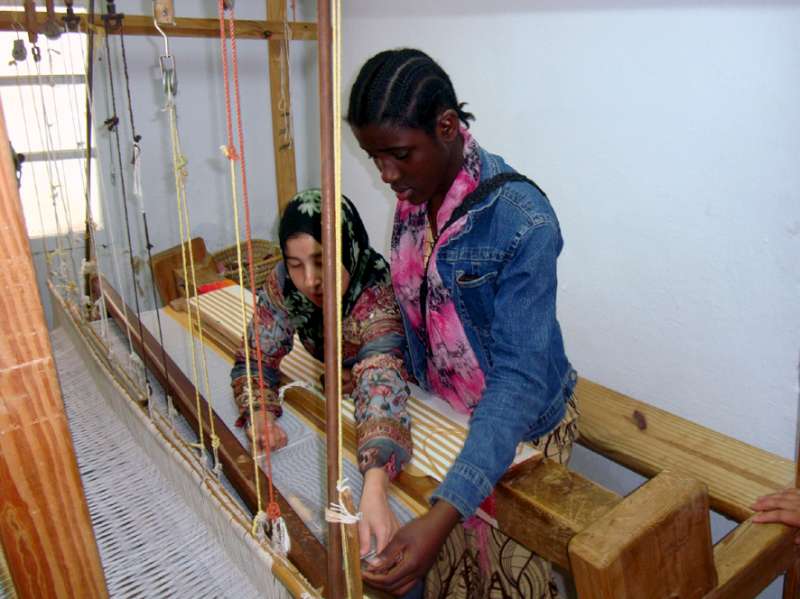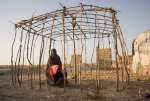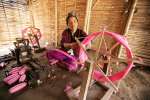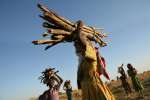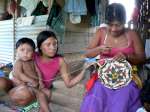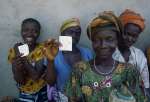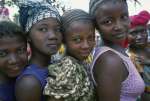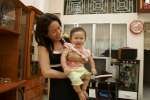Refugee women in Morocco learn about business from local women
News Stories, 15 April 2010
CHEFCHAOUEN, Morocco, April 15 (UNHCR) – UNHCR recently arranged for refugee women who are developing a crafts cooperative to learn how a group of Moroccan women in a local town have built up their own arts and crafts business over the past decade.
Some 20 refugee women – originally from sub-Saharan African countries and now living in Morocco – were driven from the capital, Rabat, to Chefchaouen, nearly 300 kilometres away in the north of the country. There they familiarized themselves with the work and management of the "Tallassamtane" craft cooperative.
The experience was arranged by two of UNHCR's implementing partners in the country – the Moroccan Association for the Promotion of Small Enterprises and the Fondation Orient Occident, a Moroccan non-governmental organization giving support to refugees and migrants.
The visit was conceived for the women to share experiences and information on improving the quality of products and discuss marketing techniques. It was a unique opportunity to create synergy between groups with different backgrounds but similar goals.
The refugee women are developing their tailoring and jewellery cooperative at the premises of the Fondation, which provides for space and equipment. The Moroccan Association for the Promotion of Small Enterprises helps manage their initiative to make it profitable and financially independent.
The Moroccan cooperative was formed nine years ago by 20 women, who initially received training and financial support from a Spanish non-governmental organization for rent and raw materials. They are now financially independent.
On arriving in Chefchaouen, set in the Rif Mountains, the refugees toured the cooperative. They examined the beautiful textiles and tried out some of the traditional textile-making equipment used by their Moroccan counterparts. Today, members of the cooperative work six hours per day, six days a week. They produce four to five large blankets a week and 10 to 20 smaller fabric items daily.
The refugee women asked wide-ranging questions about the functioning of the cooperative, its management and the acquisition of equipment. To encourage hard work, profit is distributed to members according to hours worked and revenue earned.
The visit had a double benefit for the refugee women. It was an opportunity to enjoy the culture and heritage of their country of asylum. And the refugees could learn from vulnerable Moroccan women who have raised their living standards and become financially independent.
UNHCR at the end of February listed 807 recognized refugees, including 205 children and 139 adult women, in Morocco. They originated mainly from the Ivory Coast (36 per cent), Democratic Republic of the Congo (26 per cent), and Iraq (21 per cent).




